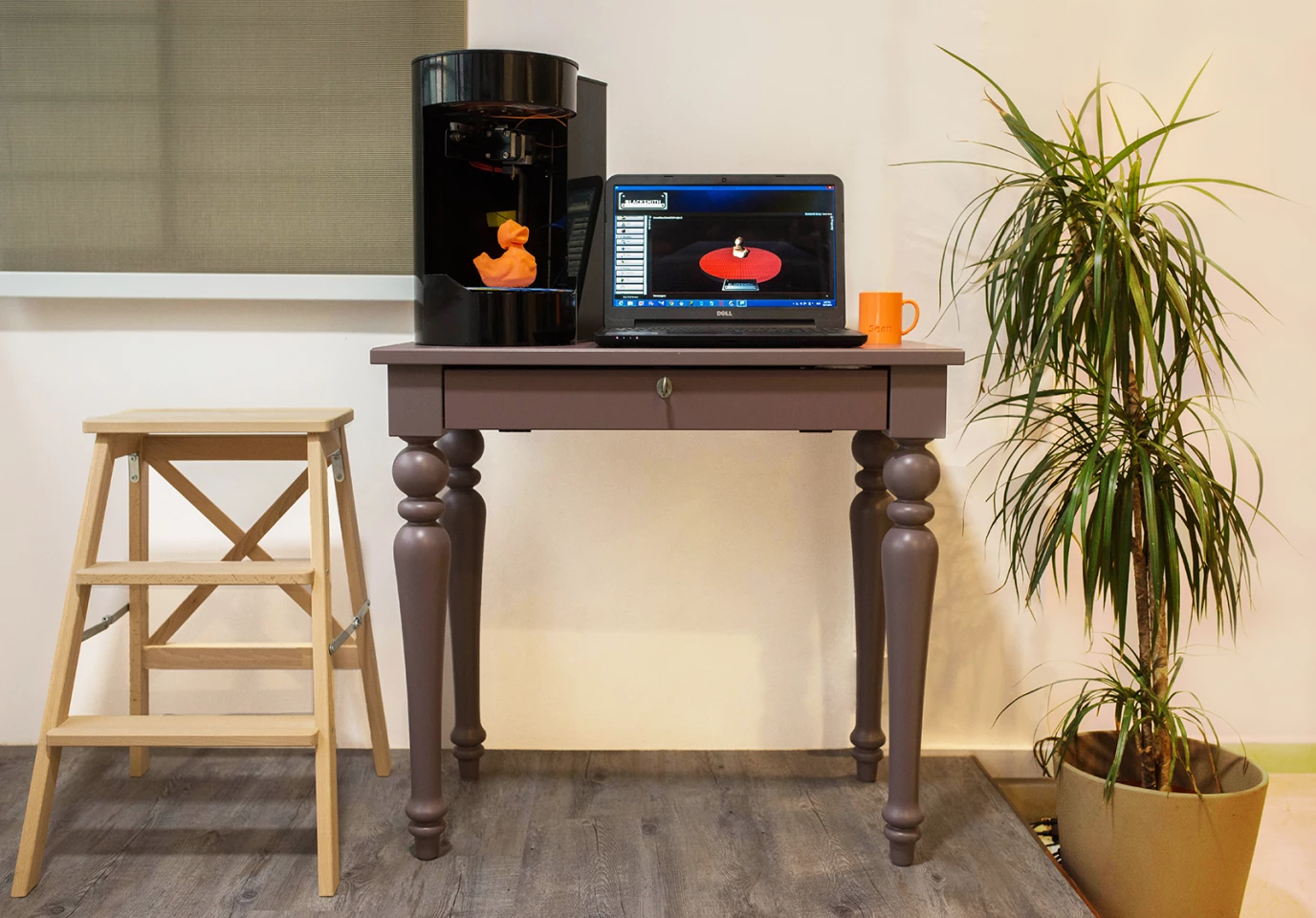3D printing may be one of the few technologies that actually holds a solid claim to the over-used adjectives "disruptive" and "world-changing," but its bulky hardware and complicated operation still largely limits its appeal to a market of enthusiasts and experts. Blacksmith, a startup from Nanyang Technological University in Singapore, hopes to give 3D printing more mass market appeal with the Blacksmith Genesisa, a new all-in-one 3D printer, scanner, and copier that handles all of the tedious and tricky parts of the process for you.
Whereas most existing commercial 3D printers use a Cartesian coordinates system, sliding inflexibly in flat planes, the diminutive Genesis – which is slightly taller than a conventional home printer and has base dimensions slightly larger than US legal paper – functions in a manner similar to a record player – with a revolving platform that rotates the object being scanned or printed.
This allows for a much smaller machine size proportional to the print/scan area and saves time during the print process as the extruder (which deposits the filament used to build objects) both travels and stops less frequently.
Its creators' claim that the Genesis is the first commercial 3D printer to use a rotary platform may be a bit of a stretch, however. Replicator Warehouse's R-360 uses a similar revolving platform for printing and scanning, albeit with a third-party sensor needed for the latter purpose, while LMI Technologies' HDI 3D scanner can also be set up to use a rotary table. The record player metaphor was further developed in the open-source Theta Printer, too, which uses four extruders to provide different colors and materials and offers nearly double the print area of the Genesis.
And a more experimental project called Polar Automation goes further still, with two rotating platters (disks) that move the object around for high-resolution scanning, printing, and milling (cutting or removing material to form a particular shape).

Blacksmith Genesis aims to be different in that it comes pre-built, fits comfortably alongside your desktop computer, and requires minimal technical know-how to use.
"Our users won't need to design an original work from scratch using 3D software," explains Blacksmith chief executive officer Fang Kok Boon. "By scanning any physical item, the digitized object can be used as a base for them to customize or even combine with other existing models to form their own 3D object."
Objects of up to 21 cm (8.3 in) in diameter and 16 cm (6.3 in) in height can be scanned with the device, while printed dimensions can be up to 23 cm (9.1 in) across and 16 cm high with a layer resolution of 50-200 microns. A built-in 3.1-megapixel camera also checks for errors and lets you monitor builds via your smartphone or tablet.
The device itself measures 35 x 25 x 41 cm (13.8 x 9.8 x 16.1 in) and weighs 11 kg (24 lb). It boasts support for .STL and .OBJ file types for printing and scanning, with the included Blacksmith Sorcerer software also supporting .BS files and running on any operating system as it is Web-based. Connectivity is currently limited to USB and SD cards, with the team planning to add Wi-Fi connectivity in the future.
Would-be buyers can pledge US$1,395 for a "batch 1" unit, whether the US$75,000 Indiegogo campaign reaches its target or not (as it's using the "flexible funding" model that means all money raised goes to the campaign organizer regardless of how the total stacks up against the target). If all goes to plan, deliveries are expected for early 2015 and free shipping promised to 70 countries.
Product page: Blacksmith Genesis













